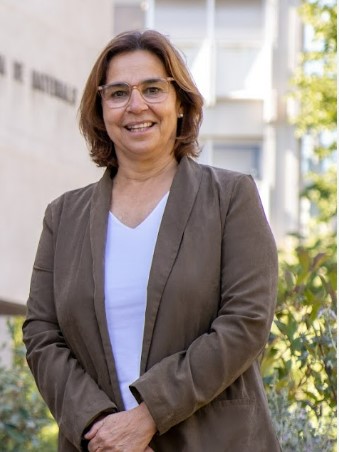
Nora Ventosa, the Scientific Director of NANBIOSIS U6 of Biomaterial Processing and Nanostructuring Unit (and IP of the NANOMOL Group of CIBERBBN at ICMAB-CSIC) has been appointed Research Professor in the last call of the Spanish National Reserach Council (CSIC)
This elective process for the selection and appointment of career civil servant, by internal promotion, in the Scale of Research Professors of Public Research Organisms had oppen 6 new positions for Professors under the Materials Science.
Nora Ventosa is a Chemical Engineer by the Institut Químic de Sarrià (IQS) and Doctor in Chemistry by the Universitat Ramon Llull. Her research is focused on green chemistry, soft materials and nanobiochemistry. She is devoted to develop and apply new methodologies, based on compressed fluids, in order to gain control of molecular self-assembly in solution.
Prof. Ventosa is also co-founder of the spin-off Nanomol Technologies, vicepresident of the Societat Catalana de Química (SCQ-IEC), member of the Administration Council of ACCIÓ, the Catalan Government agency for the promotion of the competitiveness within companies, and President of the TECNIO Research Association. She has participated, organized and directed more than 50 research projects, funded by different national and international agencies, public, private and industrial, including the European projects Smart4Fabry (Smart multifunctional GLA-nanoformulation for Fabry disease) or Phoenix (Open Innovation Test Bed for Enabling Pharmaceutical Innovative Products).
U6: Biomaterials processing and Nanostructuring unit
Unit 6 of NANBIOSIS, on Biomaterials processing and Nanostructuring unit from CIBER-BBN, hosted at ICMAB-CSIC, with Scientific Director Nora Ventosa, from the Nanomol-Bio research group. The U6 gathers several laboratories, perfectly equipped, to perform the mission of this facility: the development, characterization, and large-scale production of molecular biomaterials of therapeutic or biomedical interest, with controlled micro-, nano- and supramolecular structure. One example of Key-Enabling-Technology (KET) available in this unit in collaboration with the SME Nanomol Technologies (spin off of CSIC) is a simple and green one-step methodology, DELOS, based on the use of compressed fluids (CF), such as CO2, to prepare particulate materials with precise and reproducible structural characteristics at micro-, nano- and supramolecular levels (size, shape, internal structural gradients, supramolecular organization and crystalline purity). This example shows one of the singularities of this unit is that counts with CF–based plants at different scales, from mL to L, which allow process development by QbD and process scale-up. Recently U6 NANBIOSIS, together with the Soft Scientific and Technical Service, was accredited with the ISO9001 certification for the standard quality control system.
Congratulations Nora!








